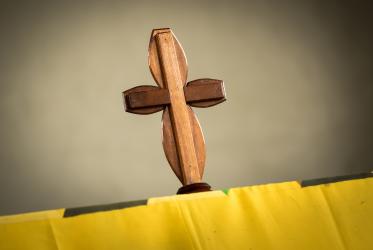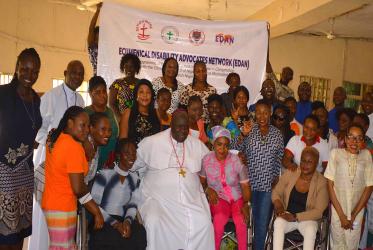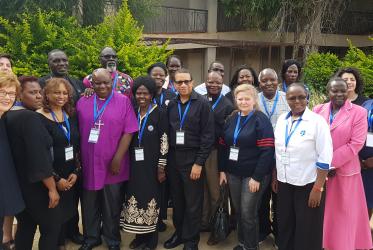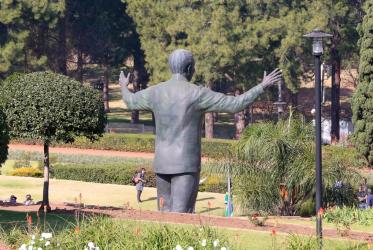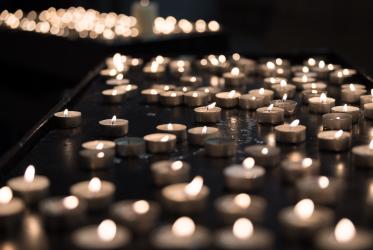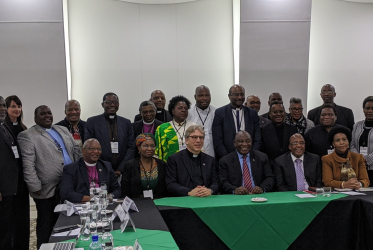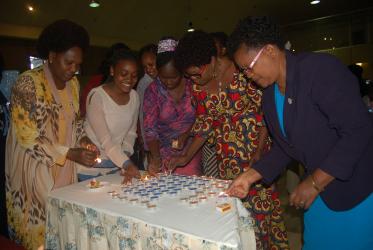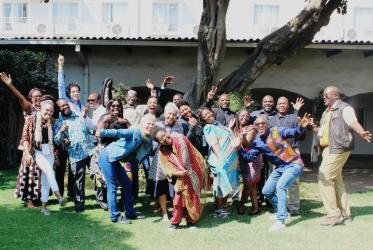Displaying 121 - 140 of 460
South Sudan Church leaders welcome new cabinet
15 March 2020
Listening together to the pain of violent spaces
28 February 2020
South Africans draw hope despite recurring challenges
16 December 2019
WCC delegation meets with South African President Ramaphosa
09 December 2019
South Sudan Council of Churches: peace “is a question of the heart”
11 November 2019
Young people in Togo: “Hear our voice! We want to tell our stories!”
07 November 2019
Youth leaders: “We will stop at nothing” to end HIV and violence
17 October 2019


